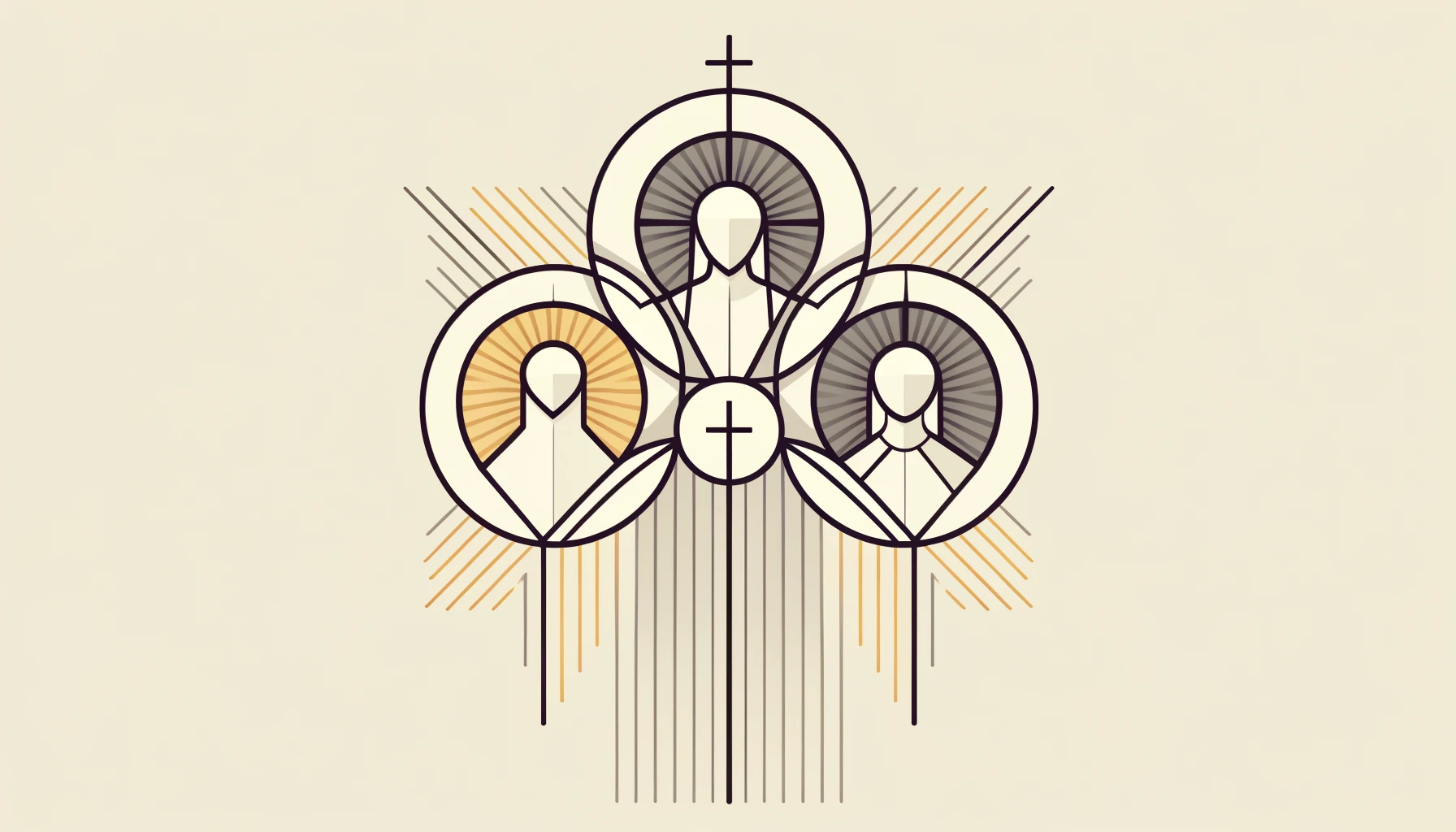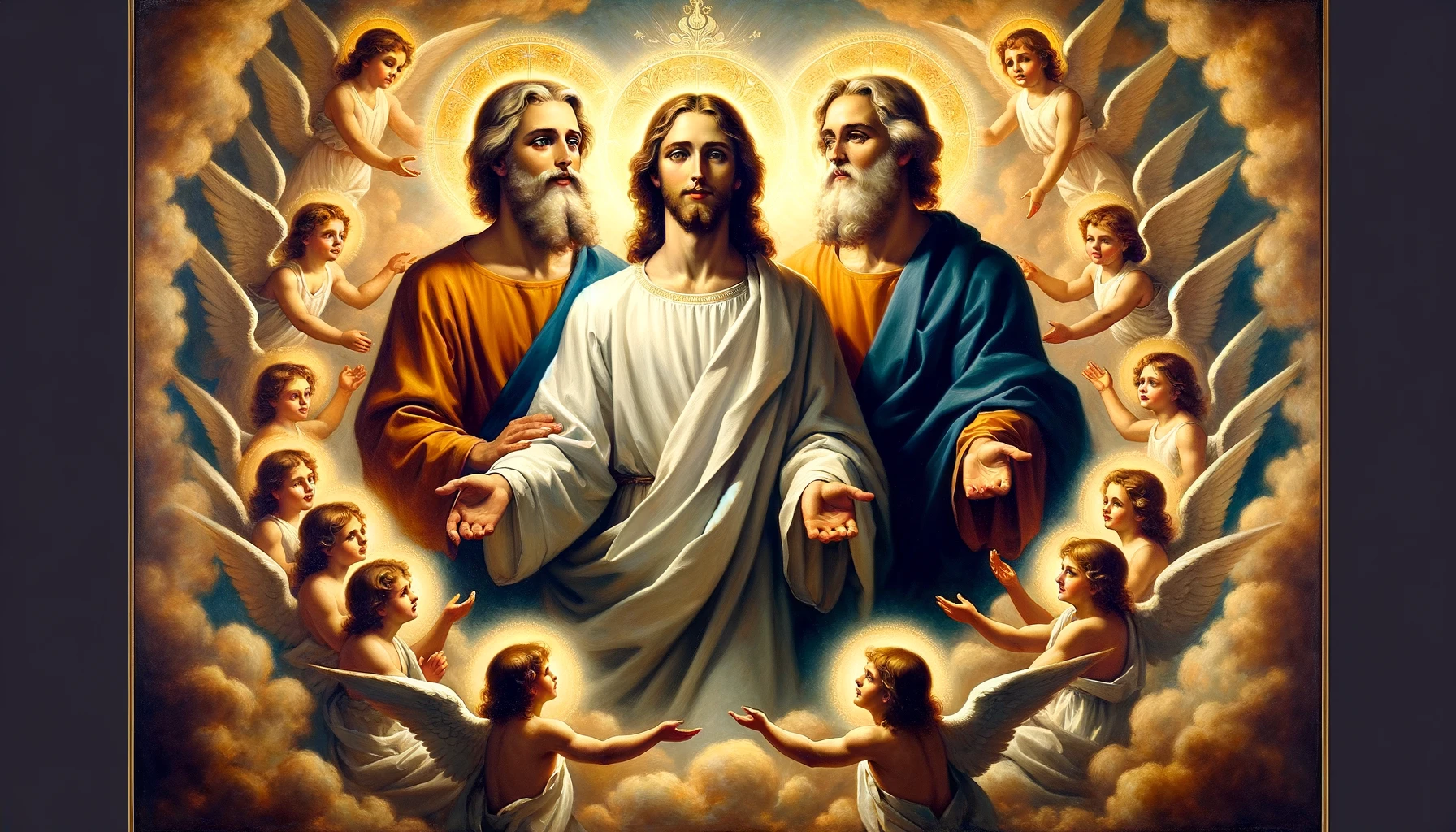Trinity Sunday is a significant feast in the Christian liturgical calendar, celebrated on the first Sunday after Pentecost. This feast is dedicated to honoring the Holy Trinity, the central mystery of the Christian faith, which encompasses the Father, the Son, and the Holy Spirit. Unlike other major Christian feasts that commemorate specific events in the life of Jesus Christ, Trinity Sunday focuses on a doctrine rather than an event.
The celebration of Trinity Sunday serves as a reminder of the complex and profound nature of God as three distinct persons in one essence. This day is an opportunity for Christians to reflect on the foundational belief that shapes much of Christian theology, worship, and practice.
Historical Background: Origins of Trinity Sunday
The origins of Trinity Sunday can be traced back to the early centuries of Christianity. It was formally established as a feast day by Pope John XXII in the 14th century, although its roots go much deeper. The Church Fathers, such as St. Augustine, made significant contributions to the understanding and development of the doctrine of the Trinity, which eventually led to the establishment of this feast.
One notable historical figure associated with Trinity Sunday is St. Thomas Becket, who is said to have introduced the celebration in England. Over time, the observance of Trinity Sunday spread throughout the Christian world, becoming a key date in the liturgical calendar, symbolizing the unity and co-equality of the three persons of the Holy Trinity.
Theological Significance: Understanding the Holy Trinity
The Holy Trinity is a cornerstone of Christian theology, describing God as one being in three persons: the Father, the Son, and the Holy Spirit. This doctrine is rooted in biblical scripture, with references found in both the Old and New Testaments. For instance, the Great Commission in Matthew 28:19 explicitly mentions the three persons of the Trinity: “Go therefore and make disciples of all nations, baptizing them in the name of the Father and of the Son and of the Holy Spirit.”
The Trinity is fundamental to Christian belief, influencing how Christians understand God’s nature and relationship with humanity. The Father represents the Creator, the Son (Jesus Christ) embodies the Savior, and the Holy Spirit signifies the Sustainer. Together, they form a perfect and harmonious unity, inviting believers into a deeper relationship with God.
Liturgical Practices: How is Trinity Sunday Celebrated?
Trinity Sunday is marked by special liturgical practices that vary across Christian denominations. Common elements include the recitation of the Athanasian Creed, which articulates the doctrine of the Trinity, and the singing of hymns that celebrate the triune nature of God. Scripture readings often focus on passages that highlight the work and presence of the Father, Son, and Holy Spirit.
In Roman Catholic, Anglican, and many Protestant churches, the liturgy on Trinity Sunday includes specific prayers and blessings that emphasize the unity and co-equality of the Trinity. Orthodox Christians also observe this feast, often incorporating it into the broader context of Pentecost celebrations. These liturgical practices serve to reinforce the theological significance of the Trinity and encourage communal reflection and worship.
Cultural and Global Perspectives: Celebrating Trinity Sunday Worldwide
Trinity Sunday is celebrated with various customs and traditions around the world, reflecting the diverse cultures within Christianity. In Western Christian traditions, churches may be adorned with symbols of the Trinity, such as the trefoil or the triquetra, and sermons often focus on explaining the mystery of the Trinity to congregants.
In contrast, Eastern Orthodox Christians may integrate Trinity Sunday into the Feast of Pentecost, observing it with elaborate liturgies and processions. In some cultures, this day is also associated with local customs and practices, such as community feasts or special acts of charity, highlighting the unity and love that the Trinity represents.
Reflection and Contemporary Relevance: The Importance of Trinity Sunday Today
Trinity Sunday remains a vital part of Christian worship and theology, providing an annual opportunity to delve deeper into the mystery of the Holy Trinity. In a contemporary context, this feast encourages believers to explore the implications of the Trinity for their faith and daily lives. Understanding the interconnectedness of the Father, Son, and Holy Spirit can enhance one’s spiritual journey and offer a more profound sense of God’s presence.
Moreover, discussions about the Trinity continue to be relevant in theological debates and ecumenical dialogues. As Christians seek greater unity and understanding across denominations, the doctrine of the Trinity serves as a common ground for exploring shared beliefs and differences.
Conclusion: The Enduring Significance of Trinity Sunday
Trinity Sunday is a celebration that encapsulates the essence of Christian belief in one God in three persons. From its historical origins to its theological significance and diverse liturgical practices, this feast remains a cornerstone of Christian worship. It invites believers to reflect on the profound mystery of the Trinity and its implications for their faith and life.
As the Christian community continues to grow and evolve, Trinity Sunday stands as a testament to the enduring relevance of the Holy Trinity, calling believers to a deeper understanding and worship of the triune God.
Additional Resources: Further Study and Reflection
For those interested in further exploring the significance of Trinity Sunday, several resources are available. Books such as “The Trinity: An Introduction to Catholic Doctrine on the Triune God” by Gilles Emery and “The Trinity and the Kingdom” by Jürgen Moltmann provide in-depth theological insights. Online resources and articles from reputable theological websites can also offer valuable perspectives and reflections.

10 Interesting Facts About Trinity Sunday
- Ancient Origins: Trinity Sunday has roots in the early Christian Church and was formally established as a feast day in the 14th century by Pope John XXII.
- Doctrine Celebration: Unlike other feasts that commemorate events in Jesus’ life, Trinity Sunday celebrates the doctrine of the Trinity – God in three persons.
- Athanasian Creed: The Athanasian Creed, often recited on Trinity Sunday, is a detailed confession of the Trinity and the Incarnation.
- First Sunday After Pentecost: Trinity Sunday is observed on the first Sunday after Pentecost, marking the end of the Easter season in the liturgical calendar.
- Symbols: Common symbols associated with Trinity Sunday include the trefoil (three-leafed clover) and the triquetra (a three-part interlocking design).
- St. Thomas Becket’s Influence: St. Thomas Becket is credited with introducing the celebration of Trinity Sunday in England.
- Ecumenical Appeal: Trinity Sunday is celebrated by various Christian denominations, including Roman Catholic, Anglican, Orthodox, and Protestant churches.
- Liturgical Color: The liturgical color for Trinity Sunday is white, symbolizing purity, joy, and the divine nature of the Trinity.
- Biblical Foundations: Key biblical passages for Trinity Sunday include Matthew 28:19, where Jesus instructs baptism in the name of the Father, Son, and Holy Spirit.
- Global Variations: Different cultures have unique ways of celebrating Trinity Sunday, incorporating local customs, feasts, and charitable acts.












Great insights into the significance of Trinity Sunday. A wonderful read!
Trinity Sunday significance ✝️
Well explained!
This article on Trinity Sunday is very informative. It’s great to understand the significance behind this day.
Trinity Sunday is an important celebration. This piece provides a thorough and engaging overview of its significance and traditions. Thanks for sharing!
The page about Trinity Sunday is very informative and engaging. It offers a detailed look at the history and significance of the day, along with some interesting facts and ways to celebrate. The information is well-organized and easy to read, making it a pleasure to navigate. This site is a fantastic resource for anyone wanting to learn more about Trinity Sunday.